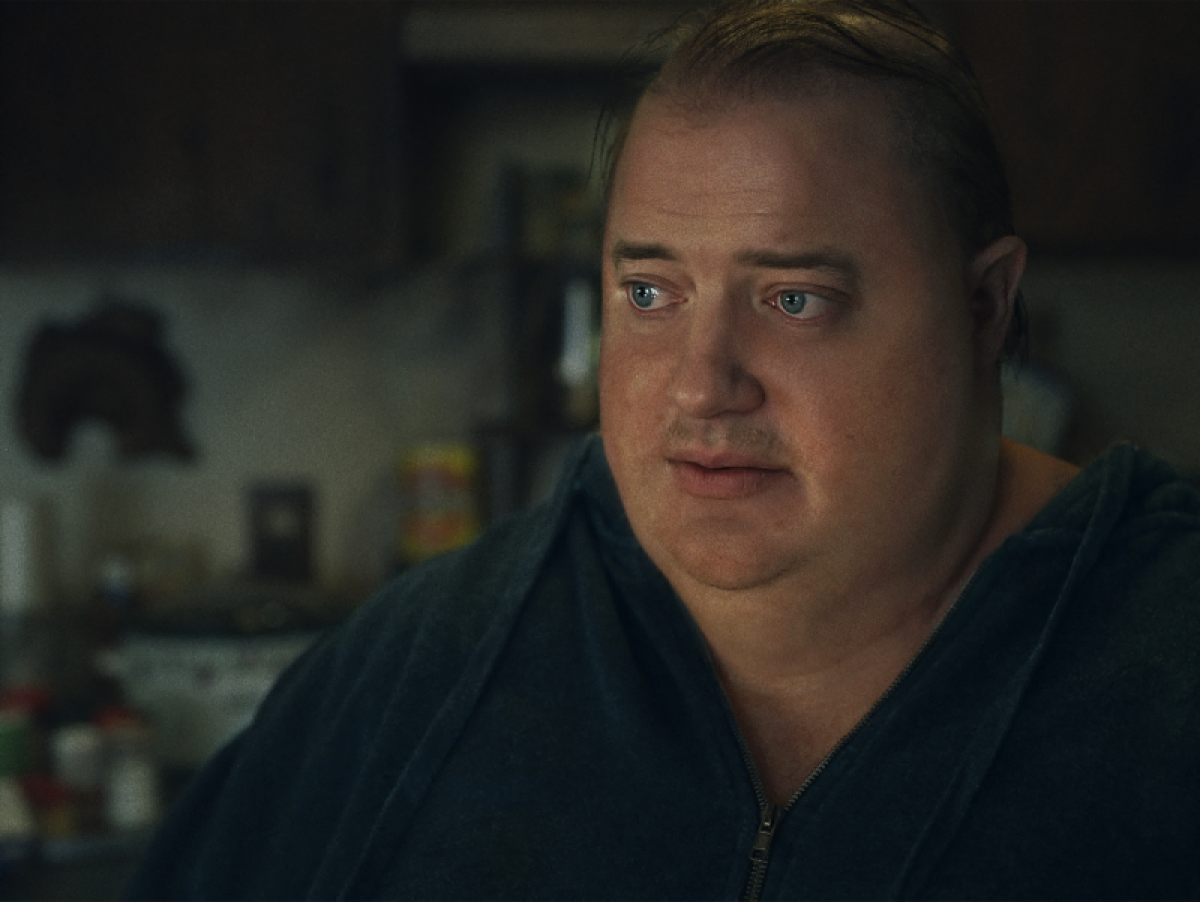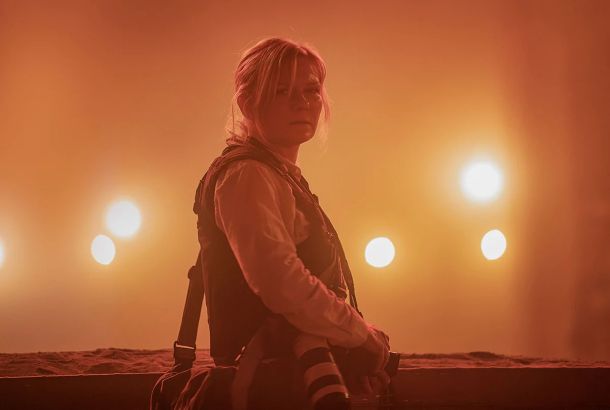The Whale debate: Offensive or groundbreaking?
By Grace Humphreys and pipcarew

Trigger Warning: discussions of eating disorders
The Whale: As human as it gets – Grace Humphreys
After his heart-warming six-minute standing ovation at the Venice Film Festival world premiere of The Whale in September, it seemed that Hollywood had welcomed Brendan Fraser’s return with open arms. Starring in one of the most anticipated films of 2023, Brendan Fraser appeared to do no wrong in the public eyes as the returning darling of 90s/00s Hollywood, mistreated by the industry, and deeply empathized with by all. However, as soon as the film was released to the general public, reviews plummeted and The Whale‘s name was dragged through the mud.
As someone who watched the film within the first few days it was released, I was expecting to find the same overwhelmingly positive reviews as were published before its cinema debut, especially after my own experience of the film. Coming out of the cinema, wiping mascara-soaked cheeks and giggling with a random woman who said “I guess we all left the same then!”
The last time I left the cinema feeling like I did after The Whale was when I went to watch Room in 2015. Brie Larson’s performance in that film went on to win her an Academy Award for Best Actress, and her performance is comparable to Brendan Fraser’s in The Whale.
As humans, it is our instinct to want others to fail and we often see this in everyday life. When the notoriously smart student gets a 40 on their mid-term everyone else rejoices in their failure, whether publicly or not. It’s proof that the best of us are human too and are all prone to failure occasionally.
This is what has happened to The Whale. When a film is highly anticipated, we love to see it flop as we can say “See! It isn’t perfect like it was expected to be!” I feel like many of the critics are comparing The Whale to an unobtainable standard, pitting it against a ‘perfect’ film that doesn’t exist just because of its initial hype.
Whilst many critics have had a lot to say when slandering this film for its alleged fatphobic portrayal of Charlie (Fraser), they had very little to say when Black Swan (2010) was released, another Aronofsky film, which depicted a highly disturbing and uncomfortable picture of anorexia and bulimia in the ballet industry. Black Swan showed the ‘ugly’ side of restrictive eating disorders but, as these are often glamorized in the media, this film was praised for its accurate depiction. Many argued that the eating disorders were not the main premise of Black Swan, however, Charlie’s isn’t in The Whale either.
The story is that of a man who is fat because he is unhappy, and not unhappy because he is fat. It shows the real life struggles of people with binge eating disorders and although Charlie is portrayed as revolting or grotesque, I believe that is because that is how he believes the other characters see him. I feel that the film is highlighting the isolation that comes with revulsion from others and when we see demeaning shots of Charlie, we are seeing him through the other character’s eyes, or what he assumes that they see; a seven-foot tall huge ‘whale’ of a man.
Opening with a semi-graphic and all too uncomfortable masturbation scene, I questioned its relevance to the film after first watching it. On further reflection, I realized that I was reminded of the final scene in Requiem for a Dream, one of Darren Aronofskys most popular films. The film ends with a disturbing and graphic scene of Marion performing degrading sexual favours in return for money.
In my eyes, these two scenes mirror each other, both showing a loss of control and an inability to accept the truth of their new lives. At the beginning of the film and without any context, I can agree that it appears out of place and sets the audience up to see Charlie as grotesque, however, I would now say it sets you up to see Charlie as weak and incapable to stop himself from spiraling to a point of no return.
I didn’t think the film was perfect, far from it. However, I do feel that the film does not deserve the hate it gets. Some dialogue is inelegant and often feels a little forced, but these were minor details when evaluating the film as a whole. Both Brendan Fraser and Hong Chau deliver impeccable performances, both working so well together on screen. There were moments where Liz (Chau) would seem to appear bigger than Charlie, even standing at five-foot, as Fraser was capable of capturing remorseful yet infantile facial expressions, driving home that he is mentally weakened. It isn’t a perfect film… but what is?
The Whale: Aronofsky’s watery melodrama – Pip Carew
I broadly like Aronofsky’s work: I like Mother! for its brave ecological cynicism and I like Black Swan because of the intense rivalry between Mila Kunis and Natalie Portman’s characters but I’ve always found his films to be more visually arresting than insightful and his latest film, The Whale, is no exception.
First, the good: The conceit of the Moby Dick essay serving as a therapeutic mantra for Charlie during intense moments is a clever turn I enjoy – after all, I’m an English student, how could I not? It’s exciting to see academic writing functioning in the real world as a means of understanding ourselves through the media we consume. I also think it was well cast, apart from Samantha Morton as the thinly drawn mother and Charlie’s estranged ex-wife who chews the scenery to no end and I was happy to see her vanish as quickly as she emerged.
Casting Brendan Fraser in a role in which his body is under scrutiny to the opposite extent of how it was in the nineties when he was known for playing jungle hunks and swoon-worthy explorers was also a clever turn. There are lots of successful elements at play – Fraser might even win an Oscar for his moving performance – but they don’t work in conjunction to create an effective whole.
The film was trying to convince me of Charlie’s goodness, of his innate right to exist in the world: the trouble being that I already believed this. If you go into The Whale already feeling empathetic towards people suffering from eating disorders (at either end of the weight scale) then you will experience very little emotional progression throughout the film. Yes, there’s a societal taboo surrounding fat people, one need only consult the ‘Circle of Shame’ section of Heat Magazine to have this suspicion confirmed, but Aronofsky doesn’t exactly go out of his way to rally against it.
One of the first scenes of Charlie is him masturbating to pornography for an extended longshot, it doesn’t serve any purpose plot or character-wise, it tells us that he’s lonely I suppose, but this and later shots of him in the shower seem to exist solely to provide the spectator with a spectacle of otherwise uninteresting daily tasks performed by a character who deviates from who we’re used to seeing onscreen. It’s still voyeurism even if the subject isn’t the skinny Hollywood stars we’re used to seeing.
Aronofsky also insists on shooting him from a low unflattering angle with seedy lighting throughout. It’s as if the film is determined to make you root for Charlie but also comes dangerously close to trauma porn territory to the point of misery, making us question how much worse this man’s life will get and if we will be subjected to watching it.
And the script! Clunky, over-expositionary Oscar bait if ever I’ve seen it. I’ll admit I cried, but any emotion the film could summon out of me was entirely due to the lead performances from Fraser and Chau than the dialogue which seemed intent on telling me every minute detail about these characters and what’s happened in their lives.
At one point, Charlie tells Liz, “people are amazing,” the vagueness of this statement encapsulates the nebulous quality of the whole film, not only because we’ve been presented with evidence for the past hour and a half that they are anything but. And if the intention was to imbue the film with hopefulness, why does Aronofsky insist on bludgeoning the viewer with shots of Charlie eating himself to death and lines of overtly cruel dialogue from his estranged daughter Ellie (Sadie Sink).
The crux of The Whale’s problems is that it suffers from extreme worldbuilding claustrophobia as many play-to-screen adaptations do. While an effective method for illustrating Charlie’s captivity in his own apartment, the scenery being limited to a few dimly lit rooms severely constrains the scope of character development throughout and the script isn’t dazzling enough to save us from getting bored. Other one-apartment films like Florian Zeller’s The Father or Sophie Hyde’s Good Luck to You Leo Grande capture the mental state of their protagonist far more inventively while avoiding the Groundhog Day-esque atmosphere that plagues The Whale.
If you’re searching for depth in your trip to the cinema, I would suggest avoiding this one and venturing to the screen next door for Sarah Polley’s wonderful Women Talking or Georgia Oakley’s Blue Jean instead.
The Whale is available to watch in UK cinemas now.







